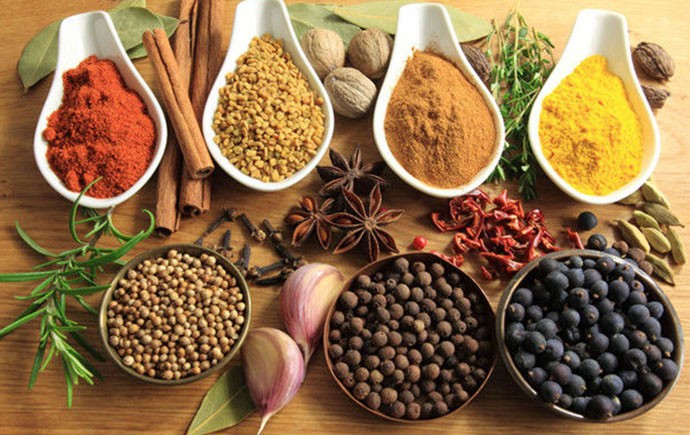Spices have played an important role throughout history, with many used for medicinal purposes well before they were used to flavor food. Science now confirms both the physical and emotional health benefits of many spices.
The rich combinations of spices used in Arab cuisine don’t only beautifully enhance the flavor of our dishes but provide numerous health benefits to boot.
Allspice, caraway, cardamom, cloves, cinnamon, cumin, garlic, mint, nigella seeds, nutmeg, saffron, sumac, turmeric, and za’atar flavor our breads, cheeses, desserts, drinks, meats and kebabs, mezze, rice, stews, vegetables, and yogurts.
For one, cinnamon is a strong antioxidant that helps fight inflammation, reduces cholesterol and triglycerides in the blood, and lowers blood sugar levels.
Saffron, on the other hand, has been shown to affect mental health by effectively treating mild to moderate depression.
Suffering from an upset stomach, bloating, or nausea? Mint and ginger are two spices that can bring relief.
The strong anti-inflammatory curcumin, found in turmeric, reportedly matches the effectiveness of some anti-inflammatory drugs, and is linked to multiple health benefits. Studies suggest it can improve brain function, reduce the risk of cancer and heart disease, fight Alzheimer’s and relief arthritis.
Antioxidants are one of the biggest health benefits of sumac and make it the perfect spice for an anti-inflammatory diet. Sumac can help prevent illnesses like coronary heart disease and has been shown to have a positive effect on diabetes patients.
The incredible benefits of garlic are simply too many to cover in this article. One fact we will share is that it significantly reduces high blood pressure.
Isn’t it wonderful to know that our cuisine not only tastes delicious but also protects our health?
Over the upcoming period, we will publish detailed information on the health benefits of each of the spices and other staples commonly used in our beautifully healthy regional cuisine.
Sahtain!

